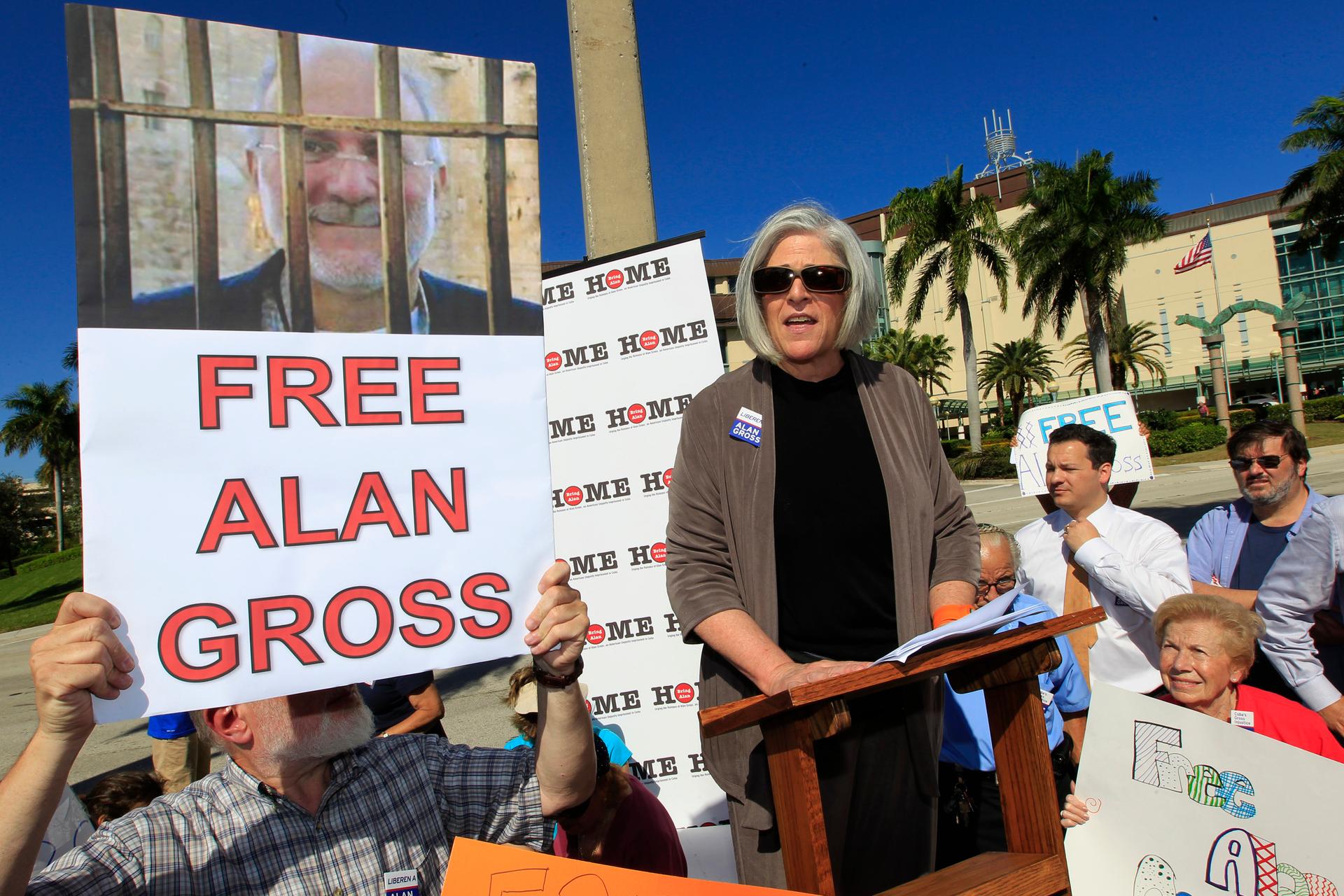It’s four years and counting for one American in a Cuban jail cell
Judy Gross, the wife of a US contractor jailed in Cuba for crimes against the state, speaks at a rally for her husband’s release in Florida.
Four years ago this week, former USAID contractor Alan Gross was boarding a plane in Havana on his way home to Maryland, when he was arrested by Cuban authorities.
Today, he sits in a prison cell in Cuba, serving a 15-year sentence for smuggling satellite phones and computer equipment onto the island without a permit.
His wife, Judy Gross, is angry US authorities haven't won her husband's release. She's worried he might be giving up.
"He's in this very small cell that he shares with two others," Gross says. "And he's allowed outside for one hour a day. He's lost over 100 pounds and he is losing hope rapidly. He was a very hopeful and gregarious kind of person, and now he's just quite depressed and afraid he'll never come home."
Gross calls her husband "a pawn" of both the American and Cuban governments. And she's calling on the White House to do more.
"It's four years of empty rhetoric and now we need something done and I think President Obama has the ways and the means and he could bring Alan home if he chose to do so," Gross says.
This has been a highly political case from the start, says William LeoGrande, a professor of government at American University who's kept a close eye on it.
"Ever since he was arrested, the US policy position has been that he was doing nothing wrong and therefore he should be released unconditionally. And, for a long time, the administration was unable and unwilling to even engage in negotiations with the Cubans about his situation," LeoGrande says.
"For a long time, the Cuban position has been [that] they're willing to talk about his case and they understand the humanitarian concern involved, but they want reciprocity. They have concerns about the five Cuban intelligentce agents that were convicted of conspiracy [and] espionage in the US and they want them released."
In recent weeks, 66 members of the US Senate, including several conservative Republicans, have sent a letter to President Obama asking him to take the initiative to launch negotiations to get Gross released. But 14 senators wrote a conflicting letter, urging the White House not to make any concessions, but to continue to insist that Gross be released unconditionally.
